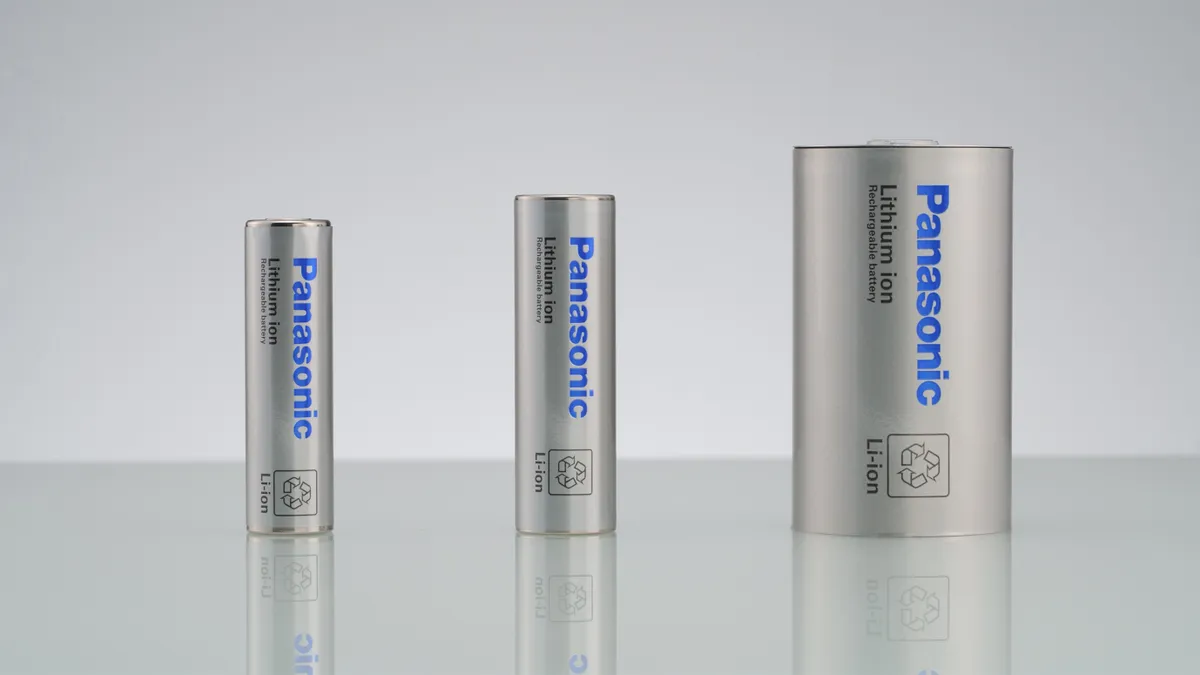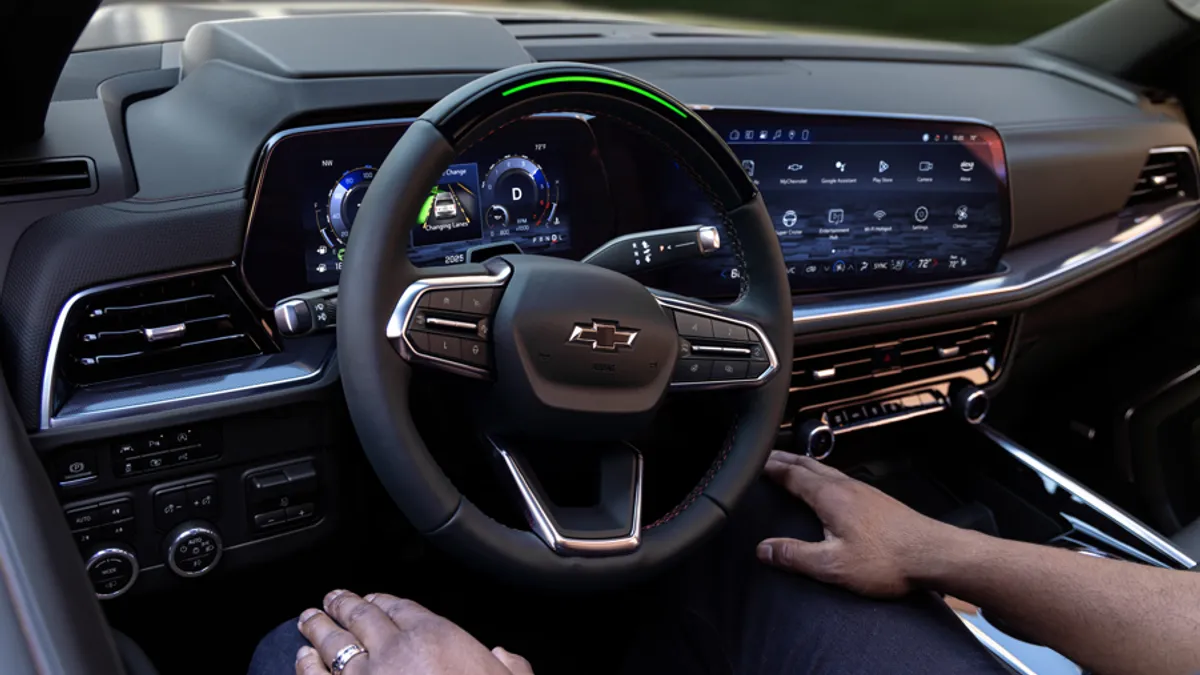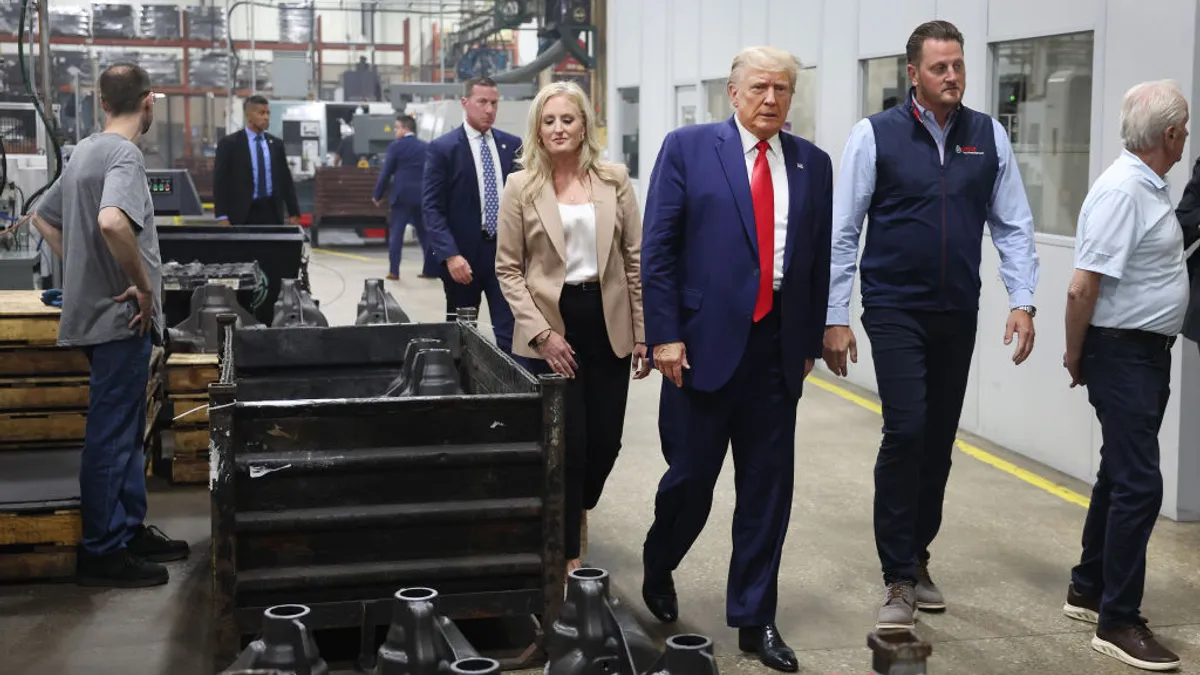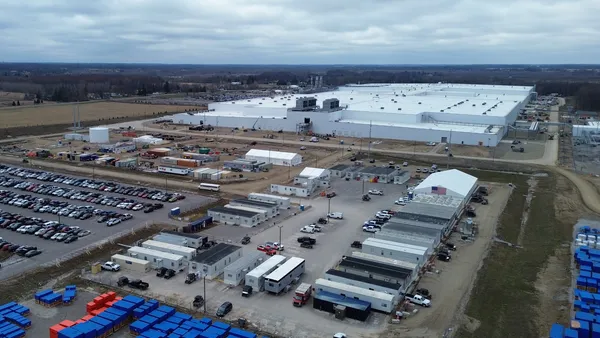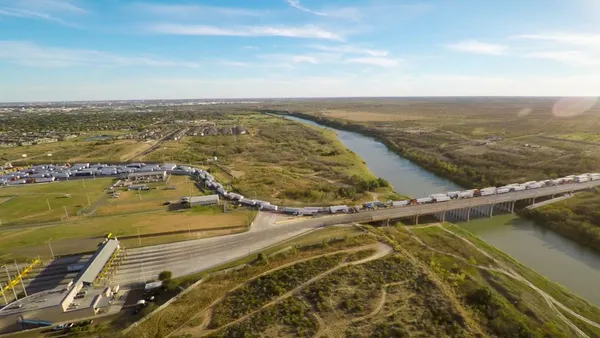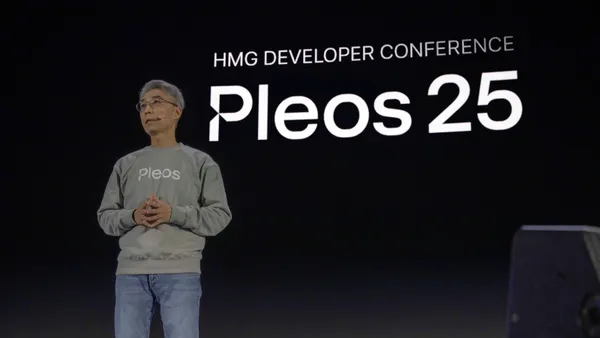Dive Brief:
- Battery maker Panasonic and Mazda are in discussions to establish a medium- to long-term supply deal as the automaker ramps up its electrification plans, according to a press release.
- If the companies reach an agreement, Panasonic will manufacture cylindrical lithium-ion batteries for Mazda at its plants in North America and Japan starting in 2025.
- The batteries would support Mazda’s plans to launch new electric vehicles in the latter half of the decade.
Dive Insight:
Automakers and suppliers have struck many high-profile deals in recent years, with many forming joint ventures to secure a steady supply of batteries to help car companies meet their EV production goals.
Tesla has used Panasonic’s cylindrical cell batteries for nearly a decade.
"As part of our electrification initiatives, Mazda is working with its partners in three phases to flexibly respond to changes in regulatory trends, consumer needs, and other areas,” said Masahiro Moro, director and senior managing executive officer of Mazda, in a press release.
Panasonic is building an EV battery factory in De Soto, Kansas, to help boost the battery supply chain in the U.S. The plant aims to start production by the end of March 2025. Output at the factory will eventually reach roughly 30 GWh annually, according to Panasonic.
In addition to supplying Tesla, Panasonic’s automotive customers include Lucid Group. Panasonic has also manufactured batteries for Tesla since 2017 at the company’s gigafactory in Sparks, Nevada. It’s currently one of the world’s biggest lithium-ion battery plants.
In November 2022, Mazda announced that it's planning to electrify all its vehicles by 2030. The automaker is working with various partners on electrification-related research projects, including developing motors, inverters and other electrical components for EVs.
The Mazda MX-30 crossover is the automaker’s only mass-produced EV for sale in the U.S.



